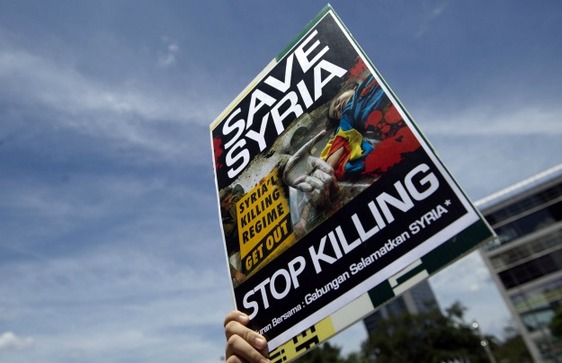Syria: Haven't we paid enough?
- By Jin Liangxiang
 0 Comment(s)
0 Comment(s) Print
Print E-mail China.org.cn, November 21, 2015
E-mail China.org.cn, November 21, 2015
|
|
|
Many reports indicate that more than 250,000 people have lost their lives since the outbreak of Syrian crisis in 2011, and millions of refugees have been created. |
Foreign ministers of 17 countries, including major global powers and Syria's neighbors, concluded a meeting about resolution of the Syrian crisis on November 14. According to reports, the parties have reached some consensus about the roadmap for this, though neither the Syrian government nor the opposition has expressed a clear position yet.
It should be meaningful progress if one considers the global efforts to resolve the issue which started in 2011. Unfortunately, this has been at a huge human cost. And the story is still far from being completed.
There are altogether four forces with different backgrounds in Syria now. They are the regime led by Bashar Assad supported by Russia and Iran, Free Syrian Army supported by Saudi Arabia and the West, ISIS and al-Nusra, offshoots of al Qaeda.
Despite the complexity involved, the future of Syria will largely be decided by the competition and conflict between Russia and Iran on the one side and Saudi Arabia and the West on the other.
A fixed calendar for Syria was agreed that would see a transitional government in six months and elections within 18 months. And the United States in particular withdrew from its previous position that Bashar Assad had to step down immediately as a precondition for any political resolution.
The modest achievements actually reflected the latest developments on the ground. Russia's military involvement greatly strengthenedAssad's standing. That's the reason why the U.S. and the West accepted the fact that he will stay for some time.
The terrorist attacks in Paris, Beirut and on Russia's passenger aircraft, as well as some attempted attacks in Iran, made all relevant parties feel the urgent need for resolution of the Syrian crisis. Anti-terrorism has become the common ground of the two competing blocs. A coalition of real significance will hopefully come into being.
Millions of refugees have fled to Syria's neighbors like Turkey, Jordan and Lebanon, as well as European countries; millions more will be created in the coming years. Therefore, Syria's neighbors and the EU are particularly concerned about an early settlement.






